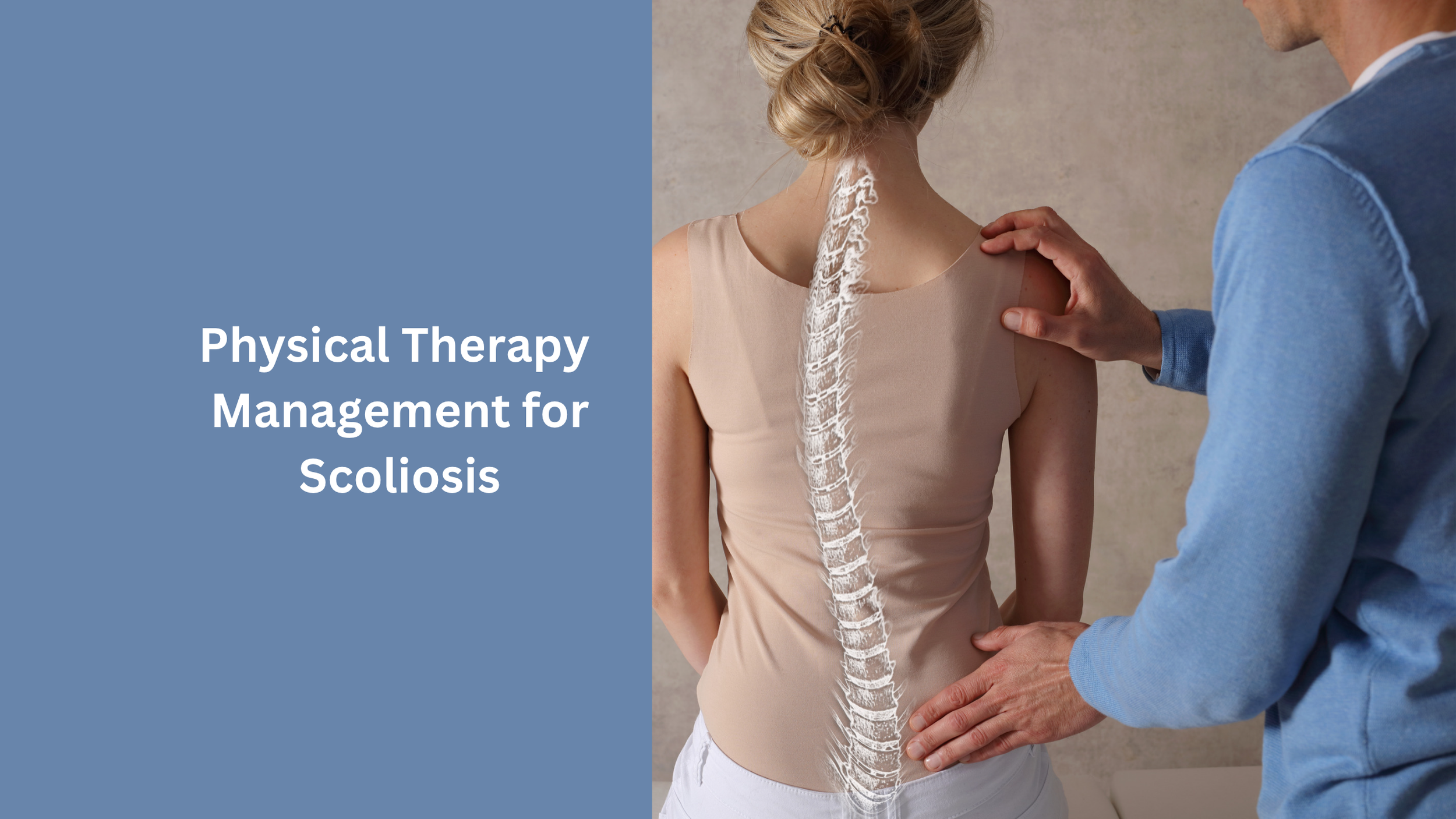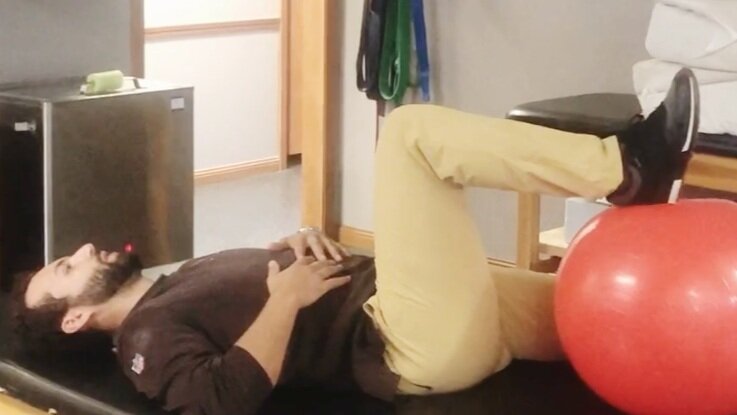Mangiarelli Rehabilitation Physical Therapy Blog
Physical Therapy Scoliosis Management [Infographic]
Check out our infographic on physical therapy management of scoliosis! Scoliosis is a condition that affects the normal shape of the spine, altering a person’s back alignment and posture and causing a lateral curvature of the spine. Physical therapy is an effective, non-invasive treatment method to manage scoliosis, stabilize the scoliosis curve, improve postural alignment, enhance neuromuscular control and muscular strength, and improve overall function in individuals with scoliosis.
8 Tips to Prevent Low Back Pain this Gardening Season
With the start of spring, many of us begin planning our gardens, including weeding, raking, and preparing for planting. Gardening has many health benefits, but injuries can occur. The low back can be particularly susceptible to injury during gardening as bending, lifting, and squatting can cause you to twist your body into awkward positions or to overstretch, leading to muscle strains or sprains. Check out our 8 tips to prevent low back pain this gardening season!
Physical Therapy Scoliosis Management
Scoliosis is a condition that affects the normal shape of the spine, altering a person’s back alignment and posture and causing a lateral “s” or “c”-shaped curve in the spine. The abnormal curvature of the spine can place stress on the surrounding muscles and joints, causing loss of strength and flexibility in the spinal and back muscles over time. Physical therapy is an effective, non-invasive treatment method to manage scoliosis, stabilize the scoliosis curve, improve postural alignment, enhance neuromuscular control and muscular strength, and improve overall function in individuals with scoliosis.
Physical Therapy for Sciatica
Sciatica is nerve pain that radiates from the low back through the buttocks and down the length of the leg due to compression of the sciatic nerve. Originating in the low back, the sciatic nerve is most commonly compressed by a herniated or slipped disc, causing shooting pain and tingling and numbness through the back and leg. Physical therapy is one of the most effective treatments for sciatica, reducing inflammation, managing and minimizing pain, improving your physical function and mobility, and preventing the reoccurrence of sciatica symptoms.
Physical Therapy for Spondylolysis in Teens
Spondylolysis is a lumbar stress fracture in the pars interarticularis, the bony bridge that connects the upper and lower facet joints of the vertebrae. Spondylolysis is a common cause of low back pain in adolescent athletes, caused by repetitive loading, backward bending, and twisting of the lower back. Physical therapy can successfully manage spondylolysis in adolescent athletes, helping to reduce pain, improve strength and function in the low back, and safely return athletes to sports competition.
How To Protect Your Back When Raking Leaves
Autumn brings with it stunning landscapes of red, gold, and orange leaves. However, the aftermath of the turning of the leaves can involve raking and bagging an enormous number of leaves in our yard. Weekly leaf raking during the fall can take quite a toll on your body if you are using incorrect biomechanics that strains your back, neck, and shoulders. The low back is particularly vulnerable to injury when raking due to the repetitive movements and constant bending and lifting of raking. Check out our tips to protect your back this season when raking leaves!
Physical Therapy for Spinal Stenosis
Spinal stenosis is a degenerative condition of the spine that involves narrowing of the openings within the vertebrae of the spinal column that results in too much pressure on the spinal cord and nerves, causing pain and weakness in the low back. Spinal stenosis can develop after the age of 50 due to the effect of aging and osteoarthritic wear and tear on the spine and spinal vertebrae. Physical therapy provides an effective treatment for spinal stenosis, helping patients regain function, mobility, and strength in their low back and relieving compression of the spinal nerves.
Exercises to Relieve Low Back Pain
On the blog, Mangiarelli Rehabilitation physical therapist Bobby demonstrates exercises to relieve acute low back pain. Low back pain is the most common condition treated by physical therapists, affecting 30% of Americans each year. Low back pain can involve dull, burning, throbbing, sharp, or shooting pain in the lumbar spine and through the buttocks and leg. Physical therapy is the first line of treatment for low back pain. A physical therapist can improve and restore mobility in the low back as well as reduce low back pain without expensive surgery or pain medications.
Physical Therapy for Piriformis Syndrome Infographic
Check out our infographic on physical therapy for piriformis syndrome! Piriformis syndrome develops due to tightening of the piriformis muscle, which can irritate and compress the sciatic nerve and cause pain through the buttocks, low back, and back of the leg. Physical therapy can isolate the true origin of the piriformis syndrome pain, help relieve pain, and restore normal movement and range of motion in the affected area through stretching, manual therapy, and targeted strengthening.
Physical Therapy for Sciatica Pain [Infographic]
Check out our infographic on physical therapy for sciatica pain! Physical therapy is the most effective treatment for sciatica pain. Sciatica is nerve pain that originates in the low back and radiates down the length of the leg due to irritation or compression of the sciatic nerve. Physical therapists treat sciatica pain through targeted strengthening of the low back, hips, and gluteal muscles, a progressive exercise program, manual therapy, and aquatic therapy.
10 Tips for a Healthy Back
Back pain is one of the most common reasons people seek physical therapy. Nearly 80% of Americans will experience back pain at some point in their life. However, there are numerous ways to support spinal health and prevent back pain, such as regular exercise, an ergonomic workspace, physical therapy, and proper lifting techniques. Check out our latest blog for our 10 Tips for a Healthy Back!
Physical Therapy After Back Surgery
Back surgery is a major surgery requiring intensive post-surgical rehabilitation to obtain the most benefit from surgery. Physical therapy helps back surgery patients improve gait, alignment, mobility, balance, and strength after surgery safely and gradually. On the blog, we highlight one back surgery patient’s progress in walking ability after one month of physical therapy.
7 Common Back Pain Myths
Nearly 80% of Americans experience back pain at some point in their lives. Misconceptions about back pain and proper treatment for it contributes to the prevalence of ongoing back pain and overspending on diagnostic tests, MRIs, medication, and surgery that can be avoided in most cases. Today, we debunk 7 myths about back pain and explain how physical therapy can help you manage chronic back pain.
Physical Therapy for Sciatica Pain Relief
Sciatica pain is nerve pain that radiates from the low back through the length of the leg due to compression of the sciatic nerve. Physical therapy is the first line of treatment for sciatica pain management, relief, and treatment. Learn what sciatica pain is, how physical therapy treats it, and watch a video by Mangiarelli Rehabilitation therapist Mike for exercises to relieve sciatica pain.
![Physical Therapy Scoliosis Management [Infographic]](https://images.squarespace-cdn.com/content/v1/5e419cdc97af032560004b99/1719256882541-G5U3OJK4W330V15FC38E/Tw+Scoliosis+Infographi.png)








![Physical Therapy for Sciatica Pain [Infographic]](https://images.squarespace-cdn.com/content/v1/5e419cdc97af032560004b99/1642433186988-YGFA0QQANLFLM1BD3D0Y/Blog+PT+Sciatica+.png)















